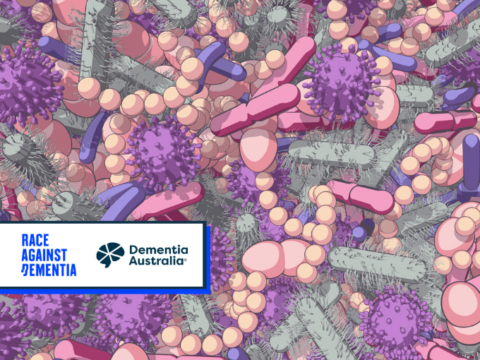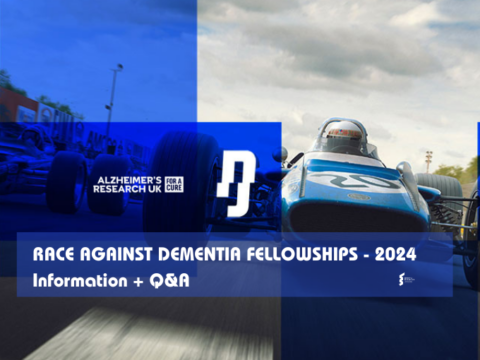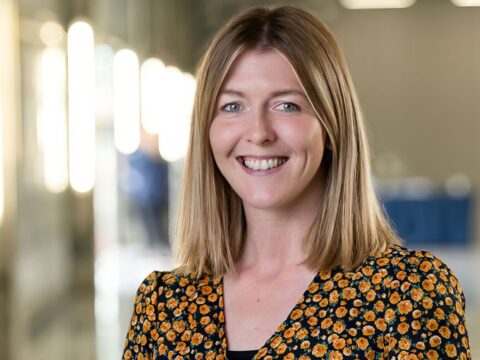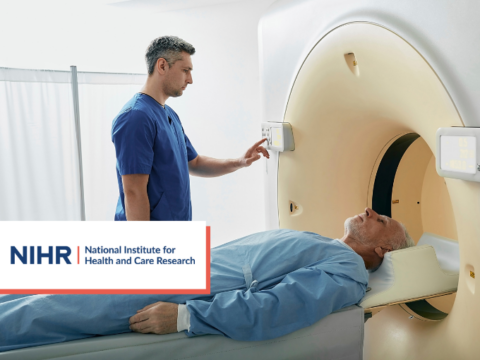Race Against Dementia (RAD) Fellowships are designed to power outstanding early career scientists in their pursuit of innovative solutions to the big questions in dementia research. Following a successful call in 2018, RAD and Alzheimer’s Research UK have launched a second call for proposals funded entirely by RAD – Submission deadline 20th January 2021.
For more information on Race Against Dementia visit: https://www.raceagainstdementia.com/ details and application form can be found at https://www.alzheimersresearchuk.org/grants/race-dementia-fellowship/
Duration:
Up to 60 months, with the Fellow strongly encouraged to undertake an international secondment or collaboration. The time dedicated to the secondment/collaboration is flexible and does not have to be in contiguous periods of time. It should be determined based on the requirements of the project and the Fellow and agreed by the host Institution.
Objectives of the scheme:
- To accelerate progress towards research breakthroughs through innovative and ambitious dementia research.
- To provide outstanding early career dementia researchers with a unique package of flexible funding and developmental opportunities to fast-track their progress towards becoming independent research scientists.
- To facilitate diverse secondments that foster interdisciplinary and inter-institutional interactions on a global scale.
RAD offers developmental opportunities for Fellows, including a mentorship scheme where they will be matched with top academic scientists, industry and/or commercial professionals, including from the world of Formula One racing. RAD also hosts an annual symposium, where Fellows will have a unique opportunity to participate in a community of expertise, and to interact with a diverse range of stakeholders. A shared focus will be to develop techniques and processes to drive faster progress in dementia research.
Fellows are strongly encouraged to undertake an international secondment to academic or non-academic sectors, to learn skills and develop collaborations that may not be available locally.
The Applicant
- Both clinical and non-clinical researchers from across all disciplines may apply. However, proposals concerning social or carer-focused research are out of remit.
- Applicants must have no more than three years post-PhD research experience at the time of applying, adjusted for part time working and career breaks.
- Applicants that have not yet been awarded their PhD may apply but must provide proof that their PhD has been awarded before the final Grant Review Board meeting in June 2021.
- Applicants to the RAD Fellowship will not be eligible to apply for any other Alzheimer’s Research UK Fellowship schemes in the October 2020-January 2021 call.
- Applicants to the 2018 RAD Fellowship call may re-apply. In the application form, applicants will be expected to directly address the Grant Review Board’s feedback and detail any changes made in response to feedback.
Note – For those outside the UK.
Race Against Dementia would like Fellows to explore the potential for collaborations and secondments outside of their host Institutions, either within the UK or internationally. These should be determined based on the requirements of the project and the Fellow, and so it is possible that opportunities will arise at any time during the Fellowship. Whilst applicants do not need to secure opportunities at the time they submit their proposals, they should consider how they’d benefit most from potential collaborations and secondments. ARUK can support applicants and Fellows by providing networking opportunities and facilitating introductions both across academia and into relevant industrial and commercial institutions. This does mean it could be possible for applicants to undertake the their Fellowship outside the UK, with the collaboration / secondment being UK based – if you have questions on this please attend and ask at the Webinar.
The Institution(s) and the Supervisor(s)
- The Fellowship must have a UK academic or not-for-profit research institution as a base.
- The applicant will need to secure a Supervisor at the Host Institution who is expected to hold a contract (fixed-term or tenure) for the duration of the project. If the Supervisor does not hold tenure, the application must include a co-Supervisor at the host institution that does.
- For secondments to other institutions, which are actively encouraged through this scheme, applications must include a Co-Supervisor from the Visiting Institution and a letter of support from the relevant department. RAD Fellowships aim to be flexible; if opportunities for secondment arise after the start date, Fellows should approach Alzheimer’s Research UK with their plans.
- The Supervisors will provide the facilities required for the research programme, have oversight of the Fellow and their research programme, contribute actively to the training of the Fellow and be supportive of the Fellow’s involvement in the diverse developmental opportunities provided by RAD.
See our Eligibility Guidelines for further information.
Funding Options
- The RAD Fellowship provides up to £500,000 in direct costs over five years, to cover salary, secondment, and running costs.
- For international secondment(s), salary costs will be corrected based on justified living costs from the Visiting Institution(s). The applicant must provide proof that the budget(s) for the secondment phase(s) have been approved by the Visiting Institution(s).
- Permitted secondment costs include: visa costs, health insurance, justified living costs (incl. salary adjustment) and travel expenses for meetings with the home Supervisor and/or Mentors.
- RAD Fellowships aim to be flexible; if opportunities for secondment arise after the start date, Fellows should approach Alzheimer’s Research UK with their plans.
- The Host Institution will be responsible for administering payments to any Visiting Institutions.
The terms and conditions of a grant differ between grant schemes. Please click the following links for examples of the award letter and contract for an Alzheimer’s Research UK Research Fellowship. Contracts are drawn up individually once the grants have been awarded. However, RAD Fellows will be expected to:
- Be entirely committed to the work proposed in the application. The scheme will be supportive of Fellows required to undertake additional academic commitments for personal development needs, including teaching, demonstrating work and NHS clinical sessions. All such activities should relate to the main thrust of the Fellow’s research interests. The Head of Department at the Host institution should confirm their willingness to comply with the conditions relating to teaching when the Host Institution accepts the award, and they should provide the Funders with details of the teaching or any other extra activity the Fellow will undertake at the earliest opportunity.
- Embrace all developmental opportunities offered by the scheme, including enrolment in a mentorship scheme, where they will be matched with innovative and ambitious academic scientists, and industry and/or commercial professionals.
- Participate in the annual RAD symposium.
Review Process
While funded entirely by Race Against Dementia, Alzheimer’s Research UK will handle the application and review processes, administer funds, and lead on impact and progress reporting.
Alzheimer’s Research UK is a member of the Association of Medical Research Charities and follows their guidelines for best practice in peer review. Grants are awarded entirely on scientific merit in relation to Alzheimer’s Research UK’s remit and on the basis of open competition. The quality of the application and applicants is the key determinant of outcome, although the strength of the dementia research environment within the institution is also considered.
Triage
Alzheimer’s Research UK Grant Review Board (GRB) members will be asked to read a subset of applications related to their area of expertise and provide a score based on whether an application should proceed to the next stage of review.
External review
Applications requesting funding of over £50,000 per year are sent for external peer review. Applications are sent to three to five researchers worldwide who specialise in the area of the application, but who do not have a conflict of interest and are not a member of the GRB. The comments made by the external reviewers are made available to the GRB members.
Review response
The applicants are provided with anonymised copies of the external peer reviews and given the opportunity to provide a written response.
Lay review
Applications for research studies that involve people require lay review. Applicants are requested to complete a lay summary of their application which is sent to lay review volunteers for comments. The comments made by lay reviewers are made available to the GRB members.
Discussion at GRB meeting
This session of the GRB meeting will be chaired by Professor Siddharthan Chandran (University of Edinburgh). Each application is allocated to two GRB members, based roughly on their areas of expertise. The two members will present the application to the rest of the board, including any relevant information from external reviews or applicant responses. A short discussion will follow before the GRB score the application and decide whether or not to call the prospective Fellow to interview. The GRB meeting will be observed by a representative from Race Against Dementia.
Interview
Ahead of the interviews, candidates will be asked to provide a short video explaining the proposed research to RAD Trustees. Guidelines on format and content will be provided.
Interviews normally take place in the fortnight following the GRB meeting. The interview panel will comprise a subset of the GRB, a representative from Race Against Dementia and representatives from Alzheimer’s Research UK. The interview will be chaired by Professor Siddharthan Chandran (University of Edinburgh). Prospective RAD Fellows will be asked to give a 15-20-minute PowerPoint presentation on their work, followed by questions from the Panel.
Trustees meetings
Those applications recommended for funding by the GRB will be presented to the RAD and Alzheimer’s Research UK Boards of Trustees for final approval.
Success rate
In the last funding round Alzheimer’s Research UK received 9 applications. 3 of these were awarded funding.

 Print This Post
Print This Post




